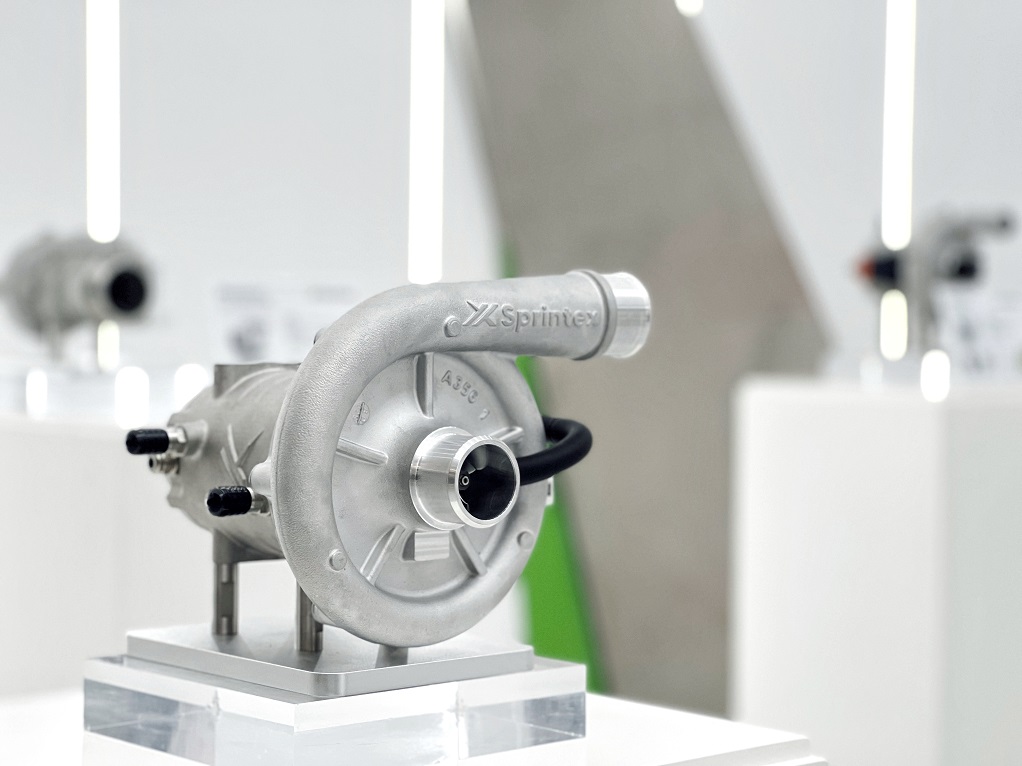Australian technology will play a major role in a European Union (EU) project designed to halve emissions in the maritime industry by 2050.
Australian company Sprintex has supplied a critical component to the US$15 billion EU Sustainable Hydrogen-Powered Shipping Project (sHYpS), involving 13 partner companies in six countries, which will convert six cruise ships to be driven by hydrogen fuel cells.
Each vessel will be equipped with around 100 megawatts (mW) of electrical power, derived from modular hydrogen fuel cells. Sprintex has delivered high-speed electric compressors which are essential for the overall efficiency and performance of the fuel cell systems.
“The cruise and shipping industry’s journey toward decarbonization is non-negotiable, and the sHYpS project will drive us towards a more sustainable and environmentally responsible future for the maritime industry,” said Sprintex CEO Jay Upton.
“The industry is navigating uncharted waters as it confronts one of its most formidable challenges yet: achieving zero-emission navigation, and the clock is ticking.”
The International Maritime Organization (IMO) has set a challenging target to reduce the total annual greenhouse gas (GHG) emissions from international shipping by at least 50 percent by 2050.
The total value of world shipping trade is valued at US$13.5 trillion and the global cruise industry is valued at US$7.7 trillion.
It’s an industry that accounts for around 3 percent of global greenhouse emissions.
“The beauty of this collaboration is that the hydrogen fuel cell systems can be stored in standard 40-foot shipping containers,” Mr Upton said.
The hydrogen fuel supply for these modular shipping container fuel cell systems will also be supplied, transported and stored (cryogenically) in 40-foot shipping containers, putting the same flexibility in to refueling and distribution of the fuel supply by container ship to any port, he said.
“This also eliminates the need for any new or additional infrastructure to allow these hydrogen powered zero emission liners to operate any route worldwide.
“So, a cruise line can have these containers with the fuel cell systems on standby in a port of their choice and then just swap them out like battery packs.
“The cruise and shipping industries need to get to net zero, and this is how it can be achieved.”
Mr Upton said the Sustainable Hydrogen-Powered Shipping Project is vitally important for several reasons:
Decarbonising the Shipping Industry: It will reduce the industry’s carbon emissions. Shipping is a major contributor to greenhouse gas emissions.
Meeting International Emissions Targets: The International Maritime Organization (IMO) has set ambitious targets for reducing greenhouse gas emissions from international shipping.
Cost effectiveness: The solution can be operated immediately without any time or money needed to make this a reality which will be attractive to shipping lines and governments.
Advancing Hydrogen Technology: Hydrogen is a clean and renewable energy carrier with significant potential to replace fossil fuels in various sectors, including transportation.
Reducing Air Pollution: In addition to addressing climate change, hydrogen-powered ships produce zero emissions during operation.
Demonstrating Scalability: Successful implementation of hydrogen-powered ships in the sHYpS project can serve as a model for scaling up hydrogen technology in the shipping sector worldwide, along with other industries.
Environmental Conservation: The project contributes to the preservation of marine ecosystems by reducing the environmental impact of shipping.
A hydrogen fuel cell compressor is a crucial component of a hydrogen fuel cell system. In hydrogen fuel cells, hydrogen gas is combined with oxygen from the air to produce electricity, with water vapor as the only byproduct.
However, the hydrogen used in fuel cells needs to be at a specific pressure for efficient and optimal performance. This is where the hydrogen fuel cell compressor comes into play.
Sprintex secured an initial order of its S26 fuel cell compressors from the UK-based company Ricardo and expects to generate revenue of US$1 million from the deal.
“Our fuel cell compressors have been tested against other units and are smaller, lighter and more power-dense, and we’re now becoming the preferred choice in a range of industries including maritime and the aviation and aerospace sectors, along with the wastewater industry.”
Source: Sprintex.
Tags: eu, Hydrogen, Project, Sprintex



Recent Posts
Port of Tauranga to Trial New Zealand’s First Fully Electric Straddle Carrier
CMA CGM Scales Up Low-Carbon Fleet and Fuel Infrastructure to Meet Net Zero Targets
OceanScore Crosses 2,300-Vessel Mark as Demand for Compliance Solutions Grows
HD Hyundai and H-Line Shipping Collaborate on AI-Powered Autonomous and Eco-Friendly Vessel Technologies
MOL Holds Naming Ceremony for LNG-Fueled VLCC Energia Viking at DACKS Shipyard
Egypt Advances Maritime Decarbonisation with National Action Plan Backed by IMO
Fuelre4m unveils VIRDIS: A predictive AI breakthrough in global fuel distribution, powered by Five9nes
EXMAR Launches First Ammonia-Fueled Gas Carrier at HD Hyundai Mipo